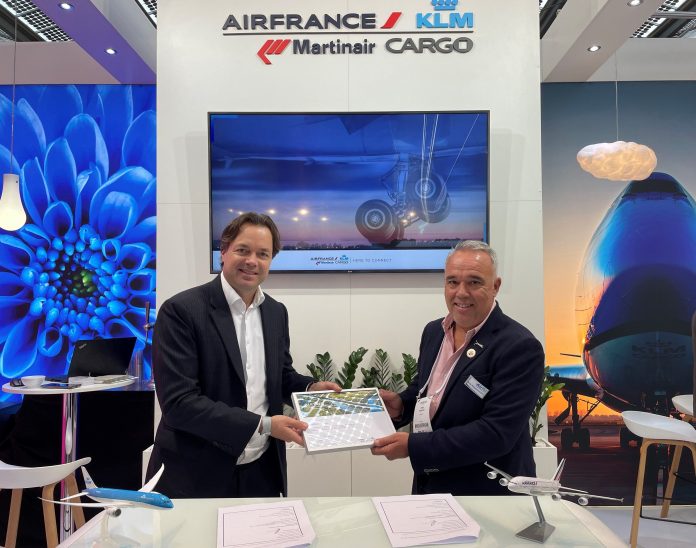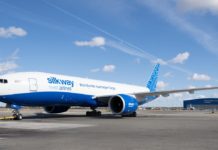Fresh logistics operators Airflo and Tiger Freight signed up to Air France KLM Martinair Cargo’s Sustainable Aviation Fuel (SAF) programme at the International Floriculture Trade Fair in the Netherlands on 3-5 November. The partnership will make it possible to use sustainable aviation fuel on AFKLMP Cargo flights from Kenya and Zimbabwe.
Airflo focuses on the transportation of fresh cut flowers and produce from Kenya and the Netherlands. Tiger Freight works with exporters of fruit, vegetables and cut flowers from Zimbabwe, Zambia and Mozambique. Together the two companies transport 85,000 tonnes of perishable cargo every year to destinations worldwide.
The logistics companies’ contribution will be used to cover the difference in price between conventional aircraft fuel and SAF.
The airline’s director of eastern and southern Africa Pier Luigi Vigada, said: “Committing to a Sustainable Aviation Fuel programme means understanding the concept, sharing the values and involving our customers. Doing that in the horticultural business environment, where margins are low and complexities are high, is a hard task. Airflo, Tiger Freight and their chief executive Andrew Pattenden, have fully embraced the project and will be supporting Air France KLM Martinair Cargo in their SAF investments for 2022, both from Kenya and Zimbabwe.”
Chief executive of the Airflo and Tiger Freight businesses, Andy Pattenden, added: “It’s critically important for us at Airflo and Tiger, that we work with all stakeholders in our industry to bring about a more sustainable future. Given that AFKLMP Cargo provides the cornerstone to our freighter programmes from both Kenya and Zimbabwe, their industry leading SAF programme is the ideal platform for us to support. Our participation in the AFKLMP SAF programme will go a long way in supporting those sustainability initiatives that we are building with our customers, amongst my colleagues and across our businesses.”
SAF is a jet fuel made from renewable sources, such as cooking oil as a sustainable alternative to fossil fuel that reduces carbon emissions by at least 75%. It is blended with conventional fossil fuel and can be used by all aircraft engines. The AFKLMP Cargo SAF programme enables different stakeholders in the logistical airfreight industry to power a percentage of their flights with SAF. Customers determine their own level of engagement and the carrier ensures that their entire investment is used to source SAF.
AFKLMP adds that by participating in the programme, its customers not only reduce their own carbon footprint, but confirm their commitment to leading the industry towards a more sustainable future. Only with the support of all stakeholders will it be possible to develop a more viable market for SAF.









